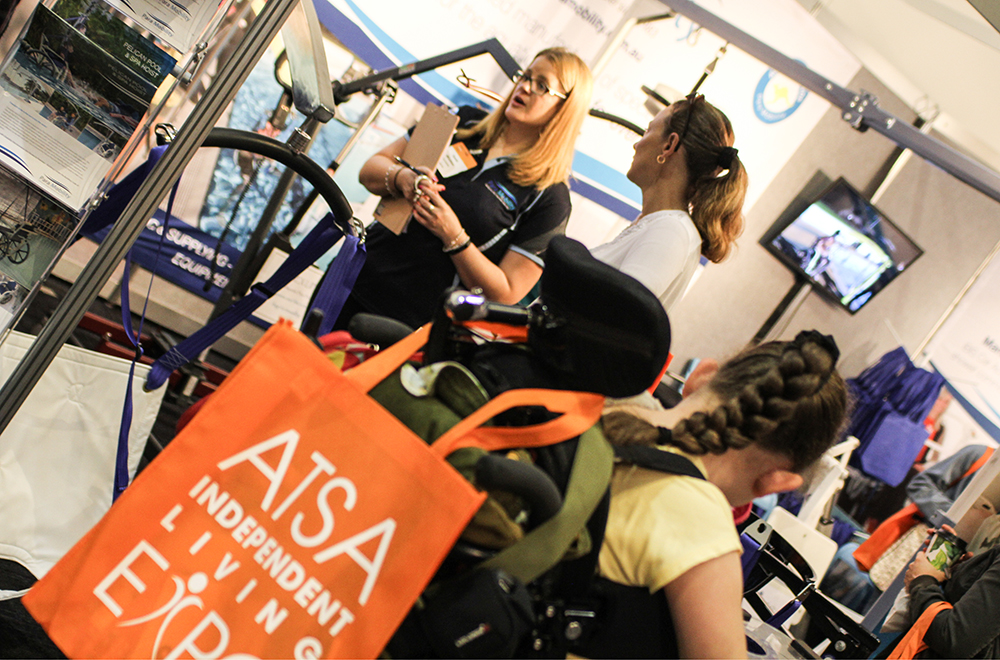Developing new strategies to deal with a more consumer-driven world is vital to the assistive technology (AT) sector with this year already shaping up with a number of major activities underway. It will also a big year of roll outs for the National Disability Insurance Scheme (NDIS) and as Western Australia comes on board demand on the industry will be high, Assistive Technology Suppliers Australasia (ATSA), executive officer, David Sinclair told F2L. ATSA anticipates that the 2018 priorities for the industry will relate to supply and prescription of AT in response to the shift to supply in a consumer-driven world. “The industry will need to develop and refine suitable strategies to manage these changing demands,” said Sinclair.
Each provider of AT is encouraged to educate and equip themselves with the latest information. This is not just in the disability space but the ageing sector as well, as society develops person centred choice and control. “AT is an integral element for enabling people to fulfil their life goals and objectives, providing opportunities for all. The National Disability Insurance Agency (NDIA) has also recognised this with the resent release of the Market Insight report that demonstrates the growth and opportunities for AT sector in the context of the NDIS.”
The ATSA Living Expos being held in Melbourne and Perth in May, have been organised to support the industry in this time of great change, he said. The expos bring AT and lifestyle services and products together to support people with disability and include an extensive program of consumer and professional based educational presentations.
“ATSA has already experienced great interest in the 2018 expos with more exhibitors signed up than previous years. The Perth event will be a first for ATSA which is already looking like a hit.”
The ATSA expos will be held at the Melbourne Showgrounds from May 16-17 and the Perth Claremont Showgrounds from May 30-31, 2018.
According to Sinclair two important Federal Government undertakings should not be overlooked in early 2018. These are:
The Senate inquiry into ‘The need for Regulation of Mobility Scooters, also known as Motorised Wheelchairs’ which has the potential to affect a number of people in the community as it will restrict the weight and speed of powered mobility. Sinclair said ATSA supports fairness and equity for seniors and people with disability, rather than over-regulation leading to misalignment with internationally accepted standards. “However, the inquiry should focus on the real issues, education and infrastructure and not just the mobility device itself. ATSA encourages all users and suppliers to respond to the inquiry so that best outcomes for all will be achieved.”
On December 13, Minister for Urban Infrastructure and Cities, Paul Fletcher announced major changes to legislation to replace the existing Road Vehicle Standards Act which was to come into effect from 2019. The aim is to provide increased consumer choice through expanding and improving the pathways for importing specialist and enthusiast vehicles including performance, low emissions and mobility access vehicles. This legislative package, Sinclair said, is the most important set of changes to the Australian Government’s regulation of motor vehicles in almost three decades. The Bills were to be introduced and debated in Parliament in the New Year.
“I encourage businesses, involved along with users of mobility access vehicles, to consider providing their feedback on the drafts of the Bills by mid-February 2018.” The Road Vehicle Standards package of Bills and information on the consultation process can be found on the department’s website.
For more information visit: infrastructure.gov.au/vehicles/mv_standards_act

